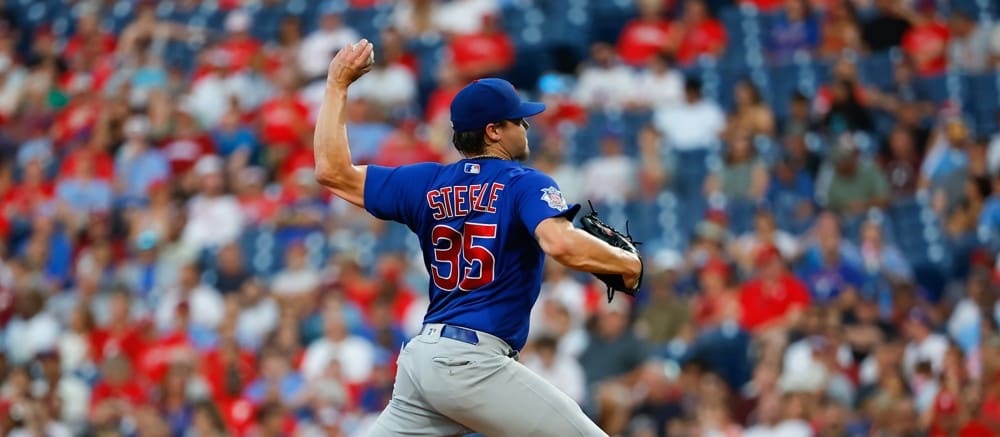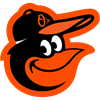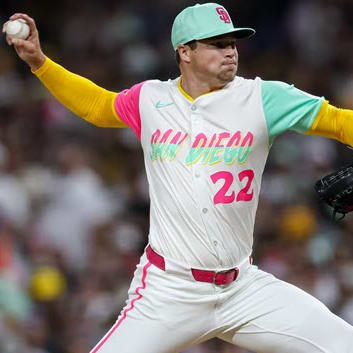In preparation for FAAB, I overlook so many players. There are only so many hours in the day, and our capacity to absorb information efficiently isn't endless. Thankfully, RotoWire has many helpful resources like the weekly AL FAAB, NL FAAB, mid-week FAAB, and many more to help with those decisions.
Checking box scores, Statcast game feeds and other leaderboards often leads to names we either have no clue about or who warrant a deeper look. The purpose of this article is to dive deeper on five such players. We'll look at two pitchers and three hitters to find out if their apparent skills are legitimate.
Justin Steele, SP, CHC
Justin Steele looked intriguing earlier in the season, but the results weren't following. Through 10 starts in April and May, Steele had a 5.40 ERA and 1.58 WHIP with a 12.6 percent K-BB%. The lefty had a solid strikeout rate, but control remained a problem. Since June 1, he's been strong as steel (pardon the pun), with a 2.08 ERA, 1.22 WHIP, and 16.6 percent K-BB%. Steele's walk rate went from 12.6 percent in April and May to 7.5 percent from June to August. Unsurprisingly, Steele's BABIP and left on base rate improved:
| April and May | June and August | |
|---|---|---|
| BABIP | .342 | .305 |
| LOB% | 59.8% | 79.1% |
| K-BB% | 12.6% | 16.6% |
While Steele's swinging strike rate remained below average, sitting around nine or 10 percent throughout the season, he generated a higher groundball rate with the improved results.
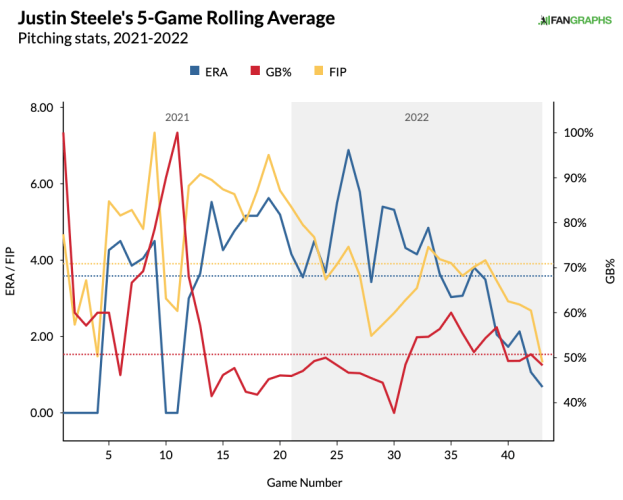
The
In preparation for FAAB, I overlook so many players. There are only so many hours in the day, and our capacity to absorb information efficiently isn't endless. Thankfully, RotoWire has many helpful resources like the weekly AL FAAB, NL FAAB, mid-week FAAB, and many more to help with those decisions.
Checking box scores, Statcast game feeds and other leaderboards often leads to names we either have no clue about or who warrant a deeper look. The purpose of this article is to dive deeper on five such players. We'll look at two pitchers and three hitters to find out if their apparent skills are legitimate.
Justin Steele, SP, CHC
Justin Steele looked intriguing earlier in the season, but the results weren't following. Through 10 starts in April and May, Steele had a 5.40 ERA and 1.58 WHIP with a 12.6 percent K-BB%. The lefty had a solid strikeout rate, but control remained a problem. Since June 1, he's been strong as steel (pardon the pun), with a 2.08 ERA, 1.22 WHIP, and 16.6 percent K-BB%. Steele's walk rate went from 12.6 percent in April and May to 7.5 percent from June to August. Unsurprisingly, Steele's BABIP and left on base rate improved:
| April and May | June and August | |
|---|---|---|
| BABIP | .342 | .305 |
| LOB% | 59.8% | 79.1% |
| K-BB% | 12.6% | 16.6% |
While Steele's swinging strike rate remained below average, sitting around nine or 10 percent throughout the season, he generated a higher groundball rate with the improved results.

The rolling graph above shows the increased groundball rate for Steele, with his ERA and FIP following suit. In April and May, Steele had a 43.4 percent groundball rate. That jumped to 55.1 percent from June to August. Those extra grounders have helped Steele limit his HR/9 to 0.59.
Steele's Arsenal
On the surface, Steele's arsenal looks like a reliever's, as he throws his four-seamer 57.1 percent of the time and his slider another 30.5 percent. He changed his pitch mix after relying on four different offerings more than 15 percent of the time last season. Steele's slider is the best pitch in his arsenal; with a 14.6 percent swinging strike rate this season, it's the only pitch in double digits in that category. That differs from last year, when Steele boasted four pitches with a double-digit swinging strike rate.
Steele's batted ball results on his slider align with his swinging strike rate, as hitters have managed just a .188 slugging percentage and a .164 wOBA against it. That's a big improvement from last season's .394 slugging percentage and .301 wOBA, even as Steele nearly doubled his slider usage. Steele's slider remains nasty from a movement profile with its above-average drop and break. It's often positive to find pitchers using their best pitch more often, and that's certainly helped Steele, though he could be even better if he develops an additional quality offering.
Takeaways
Steele went from poor luck earlier in the season in his BABIP and strand rate to much better fortune of late. He improved his groundball rate and continued to limit home runs, with his slider serving as his primary whiff pitch. Hopefully, Steele keeps limiting the walks, since control and command can be a problem for him sometimes. Those walks mean he likely won't be an asset in WHIP, but he can help in ERA and strikeouts. If Steele continues his late-season success, he might be a sleeper heading into next season.
Austin Voth, SP, BAL
On the surface, Austin Voth has scary ratios, as he owns a 4.86 ERA and 1.41 WHIP with a 14.7 percent K-BB% in 66.2 innings. Voth pitched much better with the Orioles, posting a 2.81 ERA, 1.13 WHIP and 15.7 percent K-BB%. He has a career HR/9 of 1.61, a number that dropped to 0.94 with the Orioles. Is Voth on a hot streak, or did he improve his skills?
If we look at Voth's career overall, it screams, "stay away." However, let's look at his time with Baltimore to see what's going on. Voth has worked up to six innings with the Orioles after pitching in relief in Washington. He's been fortunate with a .265 BABIP and 78.7 percent strand rate. That plus his improved home run rate helped improve his ratios. Voth's K-BB% is slightly above the league average, and his 11.7 percent swinging strike rate is mediocre. His pitch mix didn't change much, so let's dive deeper into his arsenal.
Voth's Arsenal
Voth uses three pitches over 24 percent of the time: a four-seamer (43.9 percent), curve (29.5 percent) and cutter (24.4 percent). His curveball and cutter remain his top pitches in swinging strike rate, with an 11.2 percent rate for the curve and 12.5 percent on the cut fastball. Batters have managed a .304 wOBA against the curveball and a .358 wOBA against the cutter.
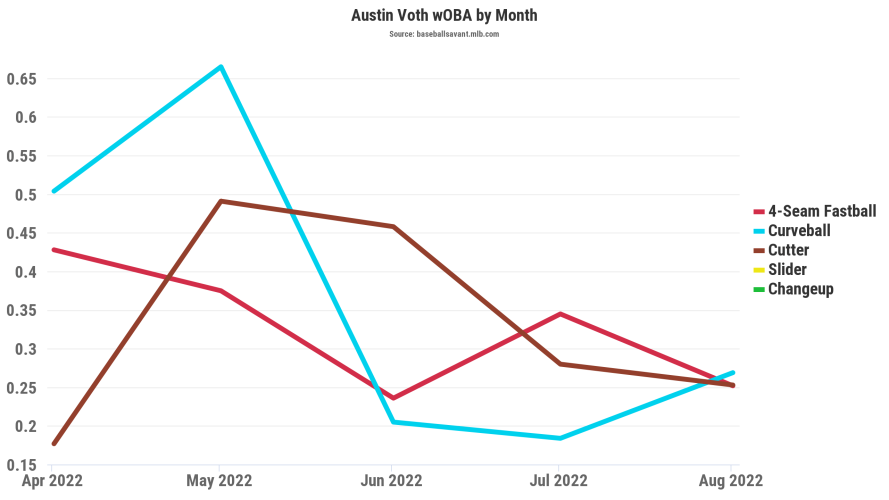
The graph above shows Voth's wOBA by month via each pitch. Note in particular how much the curveball improved. If we compare his season-long numbers to his performance just with the Orioles, Voth's results with the pitch improved dramatically. Unsurprisingly, Voth's curveball boasts above-average break and drop, explaining his whiffs and batted-ball results. Meanwhile, Voth's cutter remains a sub-par offering, as hitters have managed a .491 slugging percentage and .347 wOBA against it since June.
Takeaways
Erik Siegrist mentioned Voth as an AL FAAB pickup last week, so hopefully managers read and listened. Since Voth has performed better and had some better luck as an Oriole, we should pay attention in deeper leagues. Like Justin Steele, Voth only has one quality pitch, with Voth's stuff seeming less exciting than Steele's overall. If folks didn't add Voth, his two-start week might sway or discourage us from buying in for the rest of the year. Regardless, we'll want to monitor Orioles' pitchers since they have four starters, including Voth, with a ERAs under 4.00.
Update: On Tuesday, Voth came one out away from a quality start. Voth allowed seven hits, two earned runs, three walks, and one home run, with three strikeouts across 5.2 IP and 93 pitches thrown. His curveball served as his best pitch, with a 31 percent whiff rate and 23 percent CSW%, aligning with his season-long numbers. While Voth earned a win against the White Sox, let's see how he fares against the Astros in his next matchup.
Jake Fraley, OF, CIN
In Jake Fraley's player outlook, I noted he provides on-base percentage help while being a cheap option for power and speed. Unfortunately, a knee injury caused him to miss over three months. While Fraley has continued to sit against lefties since his return, he's been on fire whenever he's been in the lineup since his return at the end of July.
Through 71 plate appearances, Fraley has six home runs, 16 runs, 14 RBI, one stolen base and a slash line of .333/.423/.667. His underlying skills look solid, as he owns a 20 percent O-Swing%, 90.4 percent Z-Contact% and an 11.8 percent barrel rate since July 30. Fraley has typically boasted excellent plate discipline and has the best barrel rate of his career at 8.5 percent. Those numbers are boosted by the fact that Fraley rarely starts against lefties. Fraley's .443 OPS, 35 wRC+ and 35.2 percent strikeout rate in a small sample of 122 career plate appearances against lefties probably means that trend will continue.
Takeaways
Keep streaming Fraley, especially if he lines up against right-handed pitchers. Ride Fraley's bat while he's hot, since he's often dealt with injuries throughout his career. If Fraley maintains an above-average barrel rate with his patient approach, he could go on a home run binge to close to season in the best park in the league for home runs. Since the Reds rank 25th in SB%, Fraley's opportunities might be limited, though he has the skills to post 20/20 with more PA.
Christian Arroyo, 2B/SS/OF, BOS
In a deep dynasty league, utility and part-time hitters warrant attention. Christian Arroyo fits that mold with his 2B/SS/OF eligibility. Since July 30, Arroyo has played daily and has hit .377/.407/.519 with one homer 11 runs and 9 RBI in 85 plate appearances. That line has been inflated by a .444 BABIP, though he had a solid .325 BABIP in 2021. Although Arroyo hits too many groundballs, posting a 53.1 percent groundball rate since July 30, he rocks a solid 25 percent line drive rate.
Arroyo has hit the ball hard, recording a 53.1 percent hard hit rate over that stretch, but an inability to elevate the ball has led to a measly 3.1 percent barrel rate. Interestingly, Arroyo has a league-average 7.4 percent barrel rate on the season with the best maximum exit velocity of his career at 112.2 mph. That comes after he improved against all types of pitches over the last two seasons.
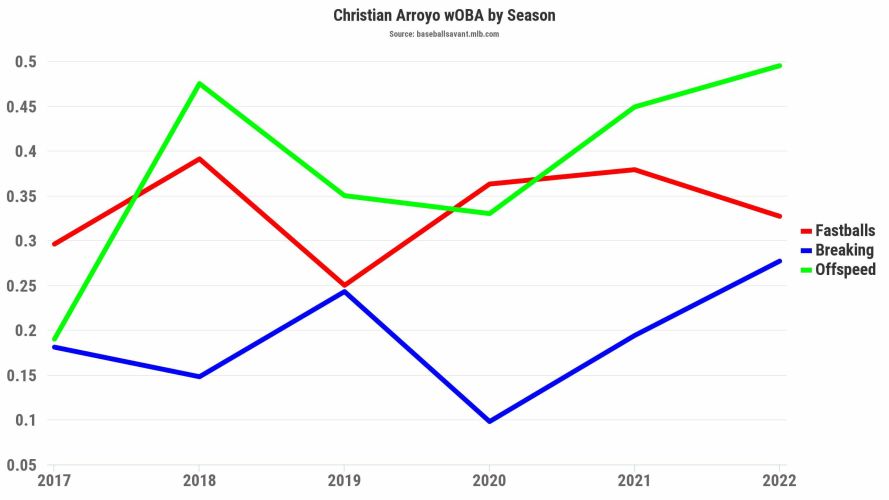
The visual above shows Arroyo's wOBA against different pitch types. He owns a .471 slugging percentage and a .351 wOBA against fastballs and a .676 slugging percentage and .483 wOBA against offspeed pitches over the past two seasons. Arroyo's quality results against more than just fastballs indicate he is a decent all-around hitter. He does use an aggressive approach, as seen in his 39.7 percent O-Swing% and 55.5 percent Swing%, but he keeps his strikeouts in check.
Takeaways
Since Arroyo has played regularly in a struggling Red Sox lineup and offers positional flexibility, he deserved the added attention over the past couple of weeks. When Trevor Story returns, Arroyo will lose playing time, though there's a chance Arroyo keeps hitting well enough to remain in the lineup. Although Arroyo doesn't have many standout skills, he provides batting average and counting stats in deeper formats.
Michael Massey, 2B, KC
The Royals have been a fun team to monitor, as they're full of young talent in Bobby Witt Jr., Vinnie Pasquantino, MJ Melendez and Nick Pratto. About a month ago, Michael Massey received the call as well, and his barrel rate has popped since his promotion. Since July 15, Massey's 16.4 percent barrel rate ranks 20th, near sluggers like Rowdy Tellez and Luke Voit. That doesn't mean Massey's barrel rate will remain that high, but it's a positive point for his profile and hints that more home runs could be coming soon. The table below shows the top hitters in barrel rate with a minimum of 50 batted ball events.
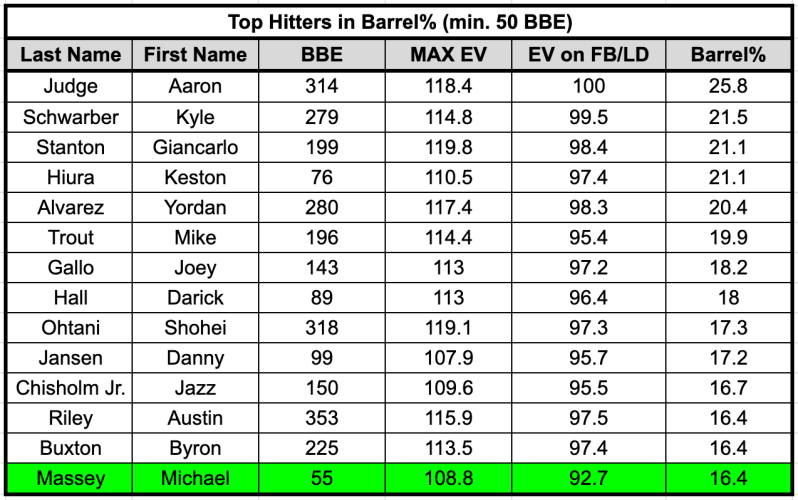
Most of the hitters on the list are the ones you'd expect, with Danny Jansen and Massey raising eyebrows. Massey puts the ball in play often, combining a 17.6 percent strikeout rate with a 5.4 percent walk rate. He has one home run and one stolen base to pair with his .288/.342/.424 slash line. While Massey uses an aggressive approach, as his 39 percent O-Swing% and 54.9 percent Swing% (almost seven points above the league average) indicate, he makes enough contact (82 percent Z-Contact%) for it to work. That contact has typically been loud, as his barrel rate indicates.
Like other young hitters, Massey doesn't pound the ball into the ground, posting a 30.2 percent groundball rate and a 49.1 percent flyball rate. His flyball rate typically hovered around 44 percent to 51 percent in the minors. His low 3.8 percent HR/FB rate suggests that he'd have more homers to his name if not for poor luck. Interestingly, his 92.7 mph exit velocity on flyballs and liners ranks just 210th amongst hitters with at least 50 batted ball events, a surprise given that one would expect better exit velocities considering his high barrel rate.
Takeaways
The weak exit velocity on flyballs and liners aligns with his mediocre 108.8 mph maximum exit velocity and 38.2 percent hard hit rate. We're still dealing with a small sample of 75 PA and 55 batted ball events, so these skills could look different with more opportunities under his belt. I wonder if Massey elevates the ball too much, especially in a pitcher-friendly home park with the third-worst home run park factor per Baseball Savant.
There's a chance Massey's barrel rate falls to meet his modest homer total rather than the reverse, since his other contact quality metrics hint at merely league-average power. As the No. 188 prospect on James Anderson's list, maybe we should temper expectations for Massey in redraft leagues, too.


